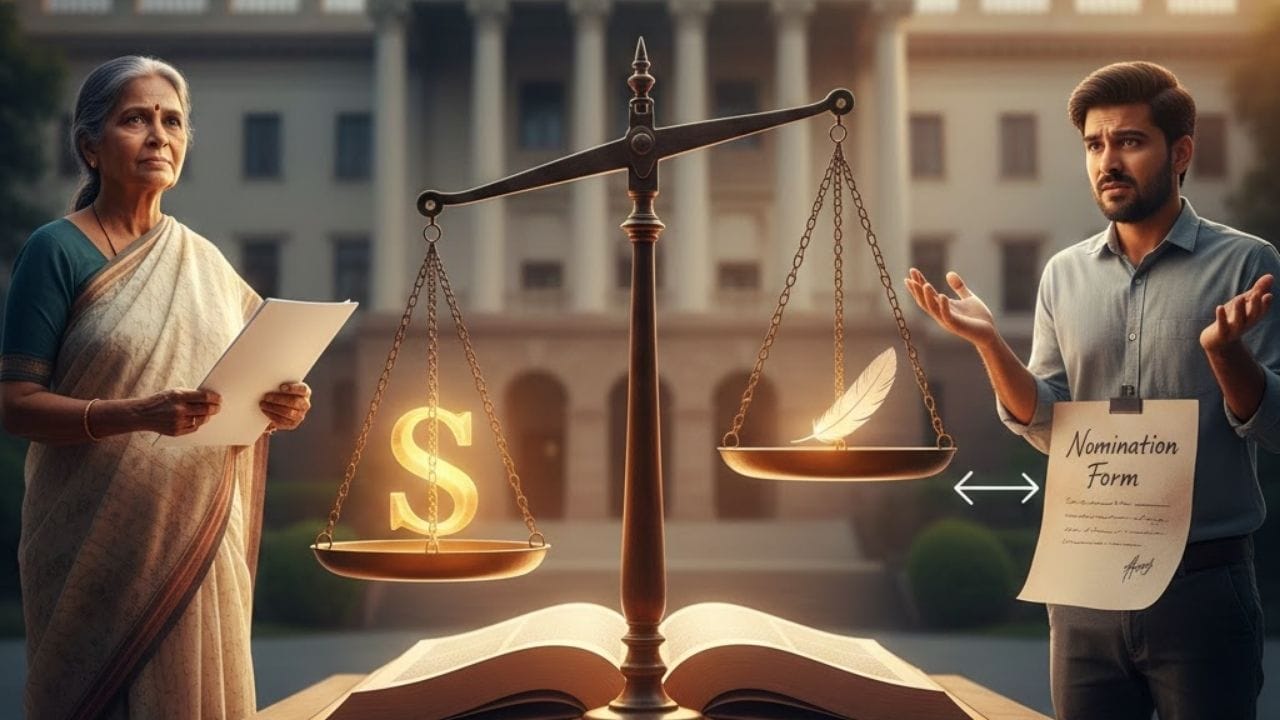who will take the pension money
A case regarding family pension has come to light, which has given an important lesson to thousands of government employees and their families. Often people think that the employee has the right to decide who will get the pension and he can nominate whomever he wants. But the Allahabad High Court has given a powerful decision and made it clear that family pension is not a will or donation, but a statutory entitlement.
The case is related to a late assistant teacher Prabhu Narayan Singh. After his death, his wife applied for family pension, but officials rejected her claim saying that the husband had not got her name mentioned in the pension documents, but had nominated his son Atul Kumar Singh. The officials also said that the wife’s photo was also not in Part-III of the application. But the wife challenged this decision and filed a petition in the High Court. Her stand was that she was a legally married wife, proof of which was the certificate from the village head and even the 2015 order of the family court for maintenance. In this order, an amount of ₹ 8,000 per month was sanctioned to him.
‘Pension is not the personal property of the employee’
Allahabad High Court studied the Uttar Pradesh Retirement Benefit Rules, 1961 and Civil Service Regulations in depth in this matter. The court clarified that under these rules, the legally married spouse is given first priority in the list of recipients of family pension. According to Rule 7(4), if the deceased employee was male, the pension will be given to the eldest surviving widow first.
In this case, son Atul Kumar Singh was nominated, but the court found that at the time of father’s death, the son was about 34 years old and another son was 32 years old. Under the rules, the son can get pension only if he fulfills certain conditions, such as prescribed age limit and financial dependency. At the age of 34, the son becomes ineligible under these criteria. The court also said that family pension is a legal right, which cannot be canceled by an employee on his own will by any nomination or action. On this matter, the court referred to Kerala High Court’s S. The decision in the S. Sathikumari Amma case was also cited.
What do the rules say?
Rule 6 states that the employee has to make nomination only in favor of family members as defined in Rule 3(3) (which includes wife, husband, sons, daughters, parents etc.). But, nomination does not mean that he can change the order of priority. Priority is always decided according to Rule 7(4), and in this the wife comes first. If the wife is not there or is ineligible to receive pension, then only other members like son or daughter get a chance, that too considering their eligibility (such as age and dependency).
The court also termed as wrong the way the officials rejected the wife’s application on the basis of nomination alone. The court said that the wife was 62 years old and after the death of her husband she had no other means of livelihood. Her taking ₹ 8,000 monthly maintenance from her husband also proves her financial dependence.
Allahabad High Court clearly said in its decision that the wife is legally married and has no other means of livelihood, hence she is entitled to family pension. The Court quashed the order dated 21.09.2020, in which the wife’s application was rejected, and directed the concerned authorities to release family pension in favor of the wife with immediate effect.
